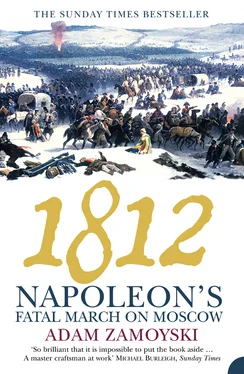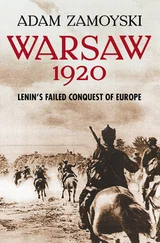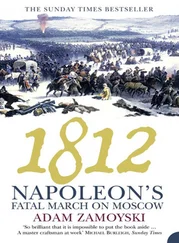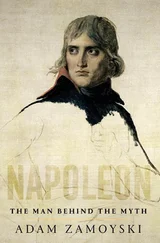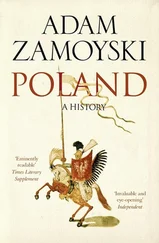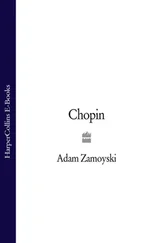Russia had little industry, and was dependent on imports for a huge variety of everyday items. These now had to be smuggled in via Sweden or through smaller ports on Russia’s Baltic coastline. Her exports – timber, grain, hemp and so on – were bulky and difficult to smuggle. The Russian rouble fell in value against most European currencies by some 25 per cent, which made foreign goods exorbitantly expensive. Between 1807 and 1811, the price of coffee more than doubled, sugar became more than three times as expensive, and a bottle of champagne went from 3.75 to twelve roubles. Russian noblemen had to pay through the nose not only for champagne, but for everything they did not produce at home, and they could not find a market for the produce of their own estates. 12
This cocktail of hurt pride and financial hardship produced ever more violent criticism of Alexander’s policy and of his State Secretary, Mikhail Mikhailovich Speransky, who was virtual prime minister. Speransky was the son of a priest, a very able man of lowly social background, ascetic and devoid of any social or financial ambition. A radical at heart, he believed autocracy to be incompatible with the rule of law, and would have liked to carry out far-reaching reform of the structure of the state. But he accepted the limitations imposed by his position and concentrated on modernising the administration. Soon after his appointment in 1807 he had promulgated reform of the legal system, which was never implemented, of government finances and of the administration.
The nobility, who sensed an enemy in him, did everything to undermine his position. There were soon rumours circulating to the effect that Speransky was a Freemason and revolutionary secretly in league with Napoleon, and that he meant to bring the whole social system crashing down.
The Tsar of Russia was theoretically an all-powerful autocrat, but his relationship with his people was a complex and ambivalent one. There was a mystical, sacred foundation to his power, since he was both his subjects’ religious hierarch and the representative of God on earth. This imposed strong bonds of obedience to him on them. But if a Tsar was felt to have betrayed his divinely ordained purpose, he became something worse than just a wicked Tsar – he became a devil who must be destroyed. At the secular level, his position was just as ambiguous. The very fact that all power was concentrated in him meant that he had no instruments with which to impose his will. He was thus in a curious way dependent on the goodwill of the nobility, which staffed the army and all the organs of state, and therefore on public opinion. And public opinion was by now strongly against Alexander and his policies on virtually every point. He was seen by many as the author of Russia’s shame, and he realised that the only way he could wipe away that shame was through war. The conquest of Finland had helped slightly, but it was not enough.
On 26 December 1809, while he was assuring Napoleon that he would do everything to make the marriage to his sister Anna possible and begging him to bury the Polish question forever, Alexander summoned Prince Adam Czartoryski, a close friend and a prominent Polish patriot who had ten years before elaborated a plan for the restoration of the Kingdom of Poland under Russia’s protection. The Tsar told him that he would now like to put this plan into action, by ‘liberating’ the Grand Duchy of Warsaw and uniting it with the Polish provinces currently under Russian rule, and asked Czartoryski to sound out the Poles on the subject. The Prince did not need to do much research. He knew that the plan could only have worked in 1805 or in 1809, during Napoleon’s war with Austria. He nevertheless went to Warsaw and saw the man who would be the key figure in such a plan – Prince Józef Poniatowski, commander-in-chief of the Grand Duchy’s army and nephew of the last King of Poland. Predictably, Poniatowski rejected the Russian proposal. 13
Czartoryski reported back to Alexander personally in April 1810. He pointed out that many Poles had got wind of Alexander’s negotiations with Napoleon to prevent the restoration of Poland, and that this hardly inspired confidence. But the Tsar clung to his view that the Poles could be won over. ‘We are now in April, so we could begin in nine months’ time,’ he concluded. 14
Caulaincourt noticed during the winter of 1809–1810 that Alexander was less and less amenable to French policies, and by the spring of 1810 he was finding the friendship he had built up with the Tsar increasingly at odds with his ambassadorial role. He began to hint to Napoleon that he would like to be recalled. But Napoleon paid no heed to his warnings or his wishes.
He had persuaded himself that Britain was suffering economically, and that a few more months would probably bring her to the negotiating table. He therefore adopted a more aggressive attitude to the application of the Continental System. His correspondence bristles with detailed instructions to the rulers and administrators of the coastal areas under his control on which ships and goods to impound and which to allow through. He suggests alternative sources of the supplies cut off and explains the principle behind his policy, exhorting all to enforce it with strictness.
Adding insult to injury, Napoleon decided to recoup some of the cost to France of the system at the expense of others. He took a leaf from the smugglers’ book and licensed a number of merchants to import goods from Britain (for which they paid a hefty price to his treasury), and these goods were then exported overland, many of them to Russia. Such procedures left Alexander with little option but to defy the system openly. On 31 December 1810 he issued an ukaz opening Russian ports to American ships and at the same time imposing hefty tariffs on (French) manufactured goods imported overland into Russia. British goods were soon pouring into Germany from Russia. The Continental System was in tatters. Yet Napoleon refused to accept this. ‘The Continental System is uppermost in his mind, he is more taken up with it than ever,’ noted his secretary Baron Fain early in 1811; ‘too much so perhaps!’ 15
In his determination to control all points of import, Napoleon annexed the Hanseatic ports. In January 1811 he did the same with the Duchy of Oldenburg, whose ruler was the father of Alexander’s brother-in-law. He did offer him another German province as compensation, but this was refused. Alexander was outraged, and felt personally insulted – his supposed ally was now dethroning members of his family, thereby reinforcing the view, widely held in Russia, that Tilsit was not an alliance but a subjection. He felt he had to act, if only to safeguard his position at home. ‘Blood must flow again,’ he told his sister Catherine. 16
On 6 January 1811 he wrote once more to Czartoryski, asking him to try persuading the Poles to accept him as their liberator and restorer. His Minister of War General Barclay de Tolly was already drawing up plans for a strike into the Grand Duchy followed by an advance into Prussia to link up with the Prussian forces. * In a second letter to Czartoryski, Alexander detailed the troops he had already massed on the border to support the operation: 106,500 in the front line supported by a second line of 134,000 men, and a third army of 44,000 men supplemented by 80,000 recruits who had already finished their training. These forces could, in case of need, be supplemented with a few divisions from the army operating against the Turks in Moldavia. ‘There can be no doubt that Napoleon is trying to provoke Russia into a break with him, hoping that I will make the mistake of being the aggressor,’ he explained. ‘It would indeed be a mistake in the present circumstances, and I am determined not to make it – but everything would look different if the Poles were to rally to me. Reinforced with the 50,000 men whom I could count on from them, by the 50,000 Prussians who could then join me without risk, and by the moral revolution which would unfailingly result in Europe, I would be in a position to reach the Oder without striking a blow.’ 17
Читать дальше
